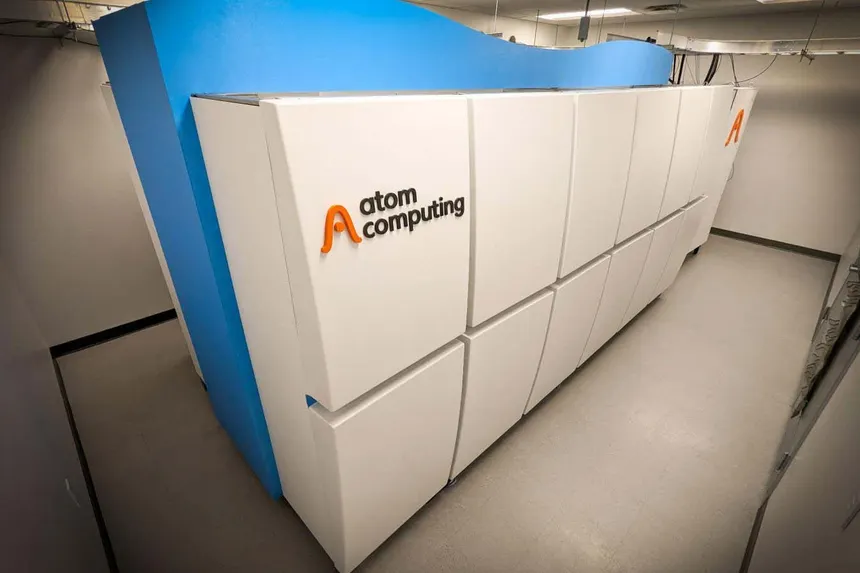Quantum computing is making rapid progress, promising to revolutionize multiple industries. Unlike traditional computers, which process information using bits (0s and 1s), quantum computers use qubits, enabling them to perform calculations at unimaginable speeds. These advancements could solve problems that were once thought impossible. But how exactly will quantum computing change our world? Let’s explore its latest developments and potential applications.
1. What is Quantum Computing?
Quantum computer is a cutting-edge field that harnesses the principles of quantum mechanics. The two main concepts that power quantum computers are:
- Superposition: Unlike classical bits, qubits can exist in multiple states (0 and 1) simultaneously, vastly increasing computing power.
- Entanglement: Qubits can be linked, allowing instantaneous communication and boosting efficiency.
These properties enable quantum computers to process complex calculations exponentially faster than traditional computers.

2. Recent Breakthroughs in Quantum Computing
The past few years have seen significant progress in quantum technology. Some of the most exciting breakthroughs include:
a) Google’s Quantum Supremacy
Google’s quantum processor, Sycamore, performed a calculation in 200 seconds that would take a supercomputer 10,000 years to complete. This achievement, called quantum supremacy, proved that quantum computers can surpass classical ones in certain tasks.
b) IBM’s 1,000+ Qubit Quantum Processor
IBM recently unveiled its Condor quantum processor with over 1,000 qubits, bringing us closer to practical quantum computing applications.
c) China’s Quantum Communication Breakthrough
China has developed a quantum satellite network, making unbreakable encryption a reality, ensuring ultimate cybersecurity.

3. How Quantum Computing Will Transform Industries
The potential of quantum computer is immense. Here are five industries that will be transformed by this revolutionary technology:
a) Healthcare and Drug Discovery
Quantum computers can analyze complex molecules and simulate drug interactions at an atomic level, leading to:
- Faster drug development for diseases like cancer and Alzheimer’s.
- Personalized medicine based on genetic data.
- Enhanced understanding of complex biological systems.
b) Cybersecurity and Encryption
Quantum computing has the power to both break and enhance encryption. Key impacts include:
- Breaking traditional encryption methods, posing a risk to sensitive data.
- Development of quantum encryption (Quantum Key Distribution – QKD), offering hack-proof communication.
c) Artificial Intelligence (AI) and Machine Learning
Quantum computing will supercharge AI by:
- Processing massive datasets at lightning speed.
- Improving machine learning algorithms for better predictions.
- Enhancing natural language processing, making AI more human-like.
d) Financial Services and Stock Market Predictions
Quantum technology will revolutionize finance through:
- Ultra-fast risk analysis for better investment decisions.
- Accurate stock market predictions using complex simulations.
- Fraud detection in real-time, preventing cybercrimes.
e) Climate Science and Weather Forecasting
Quantum computing can help scientists:
- Create highly accurate climate models for predicting climate change.
- Improve weather forecasting to mitigate natural disasters.
- Design energy-efficient materials for clean energy solutions.

4. Challenges in Quantum Computing
Despite its potential, quantum computing faces several challenges:
- Error Rates: Qubits are fragile and prone to errors, requiring advanced error correction.
- Cooling Requirements: Quantum computers operate at near absolute zero temperatures, making them expensive to maintain.
- Scalability: Current quantum computers are limited in size and power, and scaling them up remains a challenge.
5. The Future of Quantum Computing
The future of quantum computing looks promising. With rapid advancements, we may soon see:
- Quantum-powered AI solving problems beyond human capabilities.
- Mainstream adoption of quantum encryption for everyday communication.
- Quantum cloud computing, allowing businesses to access quantum power remotely.
Tech giants like Google, IBM, Microsoft, and startups like Rigetti and D-Wave are racing to commercialize quantum computing. Governments worldwide are also investing billions in research, signaling that the quantum revolution is just beginning.
Conclusion
Quantum computing is no longer just science fiction—it’s a reality that’s evolving rapidly. With potential applications in healthcare, AI, finance, and more, this technology will shape the future in ways we can’t yet fully imagine. While challenges remain, the progress being made suggests that quantum computing will soon become an integral part of our lives. Are you ready for the quantum revolution?
Do Follow USA Glory For More Updates.






